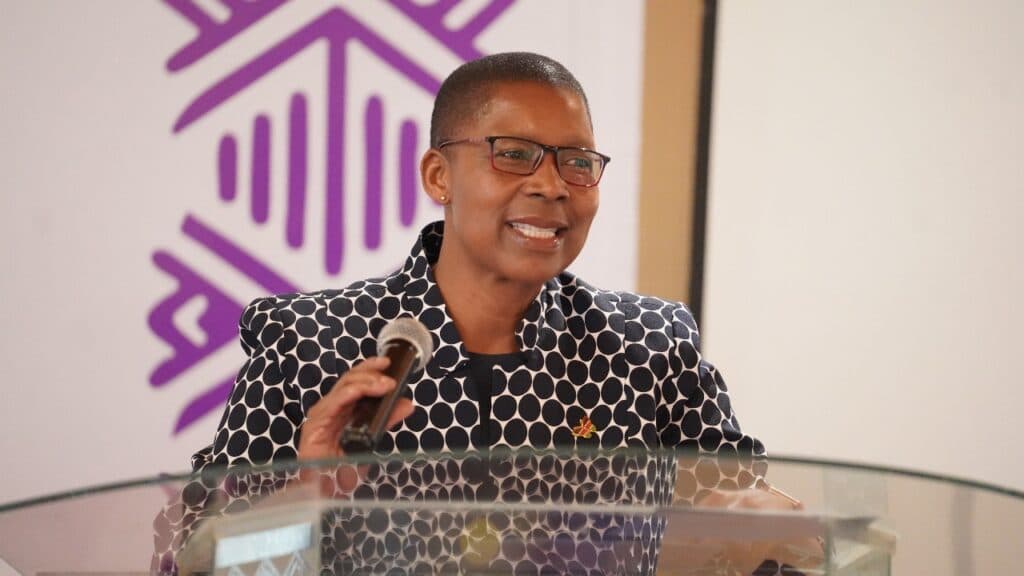We're loading the full news article for you. This includes the article content, images, author information, and related articles.
The Attorney General's directive enforces a significant High Court victory for consumers, temporarily shielding millions of Kenyans from a disputed administrative fee on essential online government services and averting a constitutional standoff.

NAIROBI, KENYA – The Office of the Attorney General on Wednesday, November 26, 2025, directed the National Treasury to immediately comply with a High Court order suspending the collection of the controversial KSh 50 e-Citizen “convenience fee.” The advisory, issued by Attorney General Dorcas Oduor, follows a protracted legal battle and underscores the government's obligation to adhere to judicial rulings, even as it pursues an appeal.
The directive was issued in response to a contempt of court application filed by Nakuru-based surgeon Dr. Benjamin Magare Gikenyi. Dr. Gikenyi sought to have Treasury Cabinet Secretary John Mbadi and other senior officials cited for contempt for failing to stop the levy despite a definitive court order.
The legal basis for the AG's action stems from an April 1, 2025, judgment by High Court Justice Chacha Mwita, who declared the KSh 50 fee unconstitutional. The court found that the fee lacked a proper legal framework, was imposed without adequate public participation, and was discriminatory. The government's subsequent attempt to suspend this ruling pending an appeal was dismissed by the Court of Appeal on November 21, 2025. A three-judge bench comprising Justices Daniel Musinga, Francis Tuiyott, and Pauline Nyamweya ruled that the public interest favoured upholding the High Court's decision to prevent citizens from being unlawfully charged.
In her advisory, the Attorney General acknowledged the state's ongoing appeal but emphasized that all government bodies are bound by the court's directives until and unless they are overturned. “The respondents remain bound by the court's directives unless and until the judgment is overturned,” the AG's office stated, referencing the constitutional principle of the rule of law under Article 10.
The e-Citizen platform is the primary digital gateway for over 15,000 Kenyan government services, including applications for passports, driving licenses, business registration, and marriage certificates. The flat KSh 50 fee, levied on every transaction, has been a point of public contention since its introduction. Critics, including petitioner Dr. Gikenyi and Kilifi Senator Stewart Madzayo, have argued that the charge is an oppressive and illegal tax, particularly for low-value transactions where it can represent a significant percentage of the service cost.
An audit by the Auditor General previously highlighted irregularities on the platform, including the improper collection of KSh 1.8 billion in convenience fees and the diversion of KSh 127.85 million to private entities. The audit found that the flat fee structure made some government services significantly more expensive.
The National Treasury has consistently defended the fee, arguing it is a necessary service charge to maintain and operate the vast e-Citizen digital infrastructure, which it insists is fully government-owned. Treasury Principal Secretary Dr. Chris Kiptoo had argued before the Court of Appeal that suspending the fee would jeopardize the platform's self-sustaining revenue model and risk the disruption of digital services. The government also maintained that public participation was conducted during the platform's development.
In her response to the contempt proceedings, the Attorney General noted that government departments had already begun taking steps to align the e-Citizen system with the court's judgment. However, she explained that certain administrative actions, such as reconfiguring the system and reallocating budget votes, involve statutory procedures that require time to implement.
With this formal directive, pressure now mounts on the National Treasury to demonstrate full and immediate compliance. The suspension of the fee provides temporary financial relief to millions of Kenyans, reinforcing the judiciary's role as a check on executive power. The final outcome will now depend on the substantive appeal, which will determine the long-term legality of charging Kenyans an extra fee to access essential government services online.
Keep the conversation in one place—threads here stay linked to the story and in the forums.
Sign in to start a discussion
Start a conversation about this story and keep it linked here.
Other hot threads
E-sports and Gaming Community in Kenya
Active 9 months ago
The Role of Technology in Modern Agriculture (AgriTech)
Active 9 months ago
Popular Recreational Activities Across Counties
Active 9 months ago
Investing in Youth Sports Development Programs
Active 9 months ago
Key figures and persons of interest featured in this article